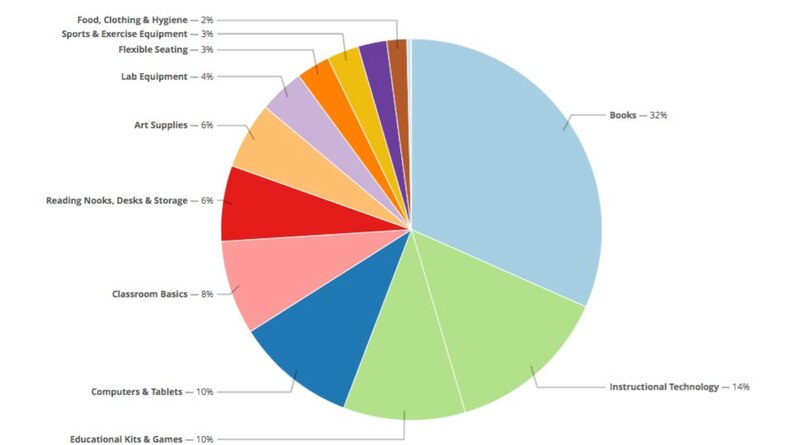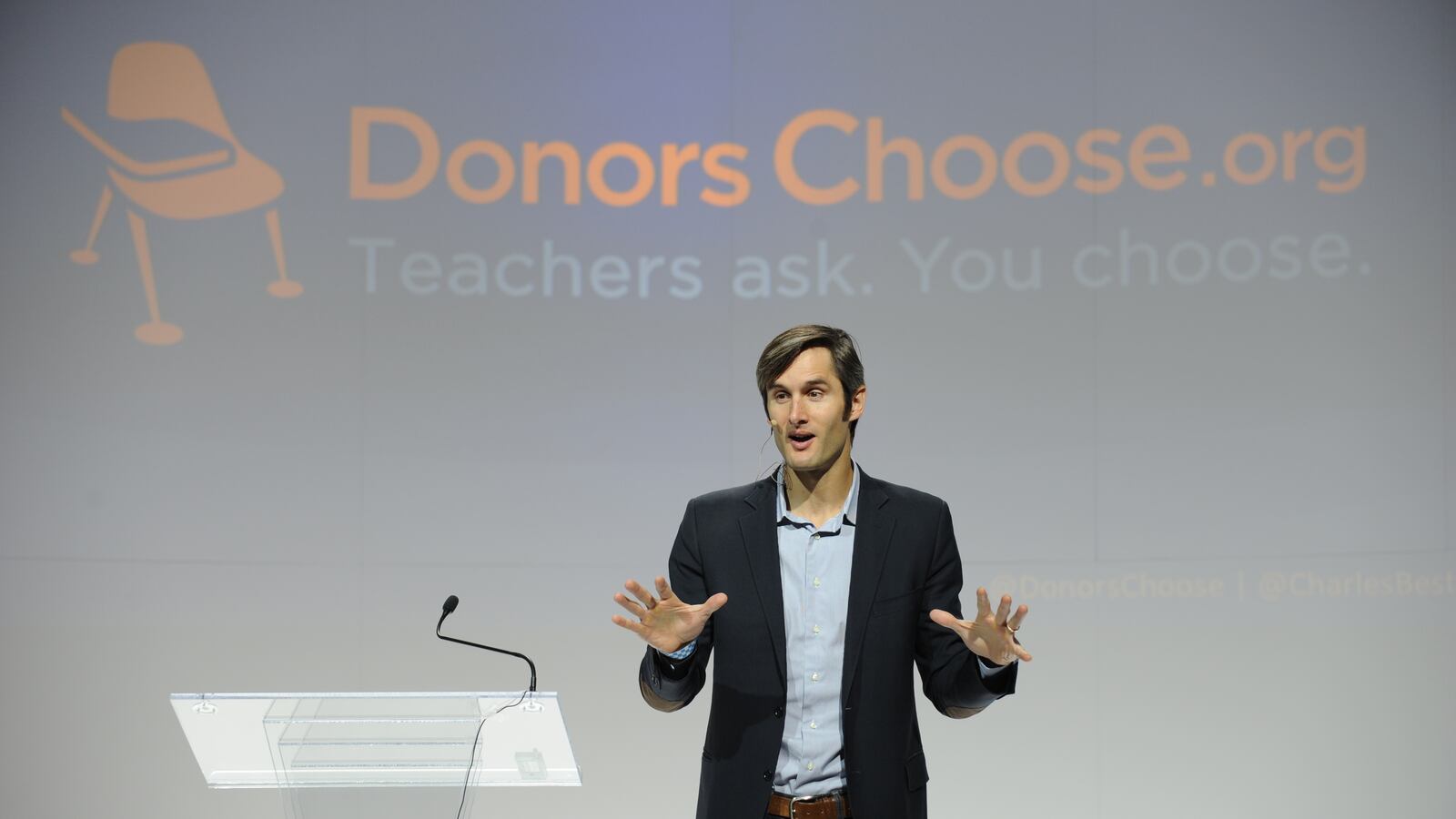Cushioned seating, compost bins, standing desks, even a science kit for forensic investigation — these are some of the things Chicago teachers are thinking about providing for their students in the coming school year.
“I have 43 kids on my roster this year,” said Judith Hill, a fifth-grade math and reading teacher at Bass Elementary School in Englewood. “I need to think about how to make the learning environment flexible and fluid.”
Using DonorsChoose.org, a crowdfunding website where teachers can receive donations from anyone in the world, Chicago teachers have been financing not only basic supplies, but more and more, also cutting-edge and innovative projects. In a district still recovering from severe budget cuts, many schools lack fundamental materials and furniture — not to mention the costly tools for sciences and myriad art supplies for primary grades. The site allows teachers to try to fund basic items, bypass requests to their principals, and try out out-of-the-box ideas.
On the site, teachers submit funding proposals that are vetted by DonorsChoose.org. Teachers then have four months for their online appeal to garner donations to meet their goal, and if they make it, DonorsChoose.org will ship the requested materials to the teacher. In return, teachers have their students write handwritten thank-you notes to the donors.
The site was launched in New York in 2000 by Charles Best, then a Bronx public high school teacher who was using his own money to buy much of his classroom supplies. A recent report by the National Bureau of Education Statistics showed that in the 2014-15 school year, public school teachers spent on average $480 annually of their own money on supplies.
The site expanded to Chicago, one of its first cities, in 2004. Now, Best said, Chicago has the most teachers and the most fully funded projects compared with all other cities when adjusted for population. Since it arrived in Chicago, teachers in 500 schools in the district have received over $20 million in donations, half of them coming from out of state.
See how much in donations your school has received since 2005.
From 2005 until now, Chicago teachers’ most common request was for books, a DonorsChoose.org report released last week shows. That’s in keeping with a report from past years. What’s notable, though, is that teachers have also requested materials for personalized and creative forms of learning, such as art and science supplies, instructional technology, and flexible seating — soft or elastic chairs that teachers say allow students to feel more at ease and to focus better in the classroom.
Chicago Schools have been pushing for those forms of learning. In May, CPS announced an expansion of a partnership with non-profit LEAP Innovations. In the next school year, LEAP will provide personalized learning training to teachers in 35 schools. Teachers receive technology from LEAP, but many still seek additional supplies.

Best said that “the most exciting projects on the site is hatching a new way of teaching and not simply covering basic needs.” He hopes school districts one day will fully provide those needs.
Best believes the crowdfunding model drives the innovative projects. “We can tap into classroom teachers’ frontline expertise,” he said, to “unleash better targeted, more creative, more innovative, micro solutions than what someone would have come up with from on high.”
Flexible seating is an example of that. It’s a growing trend on the site, which Best said preceded experts identifying the psychological benefits of the seating.
Judith Hill from Bass said that when she first started using the site five years ago, she saw teachers requesting iPads and laptops. Now she’s noted requests getting more creative.
“It makes me step up my game,” she said.
Most recently, she won $1,000 in a contest created by LEAP and DonorsChoose.org that will provide printers so her students can save physical copies of their digital projects and bluetooth speakers to stimulate her students’ learning through listening.
Of course, appealing to the public to fund classroom projects is not something all teachers want to do. The site favors those with more social media savvy and a wider network of friends and contacts. And while most projects, 73 percent, get fully funded, many teachers might not have the time to post requests and risk not having them funded.
Hill believes, though, that the site “allows you to really be an advocate and not have to be a salesperson,” she said. “Trying to find people to fund those projects is hard. It’s nice to know that you have an outlet to advocate for you while you’re advocating for your students.”
Jose Candia, a third-grade math and science teacher at Lorca Elementary School in Avondale, said the site expedites the process of receiving materials. Candia just won nearly $2,000 also in the contest to procure, among several things, compost bins for the school’s gardening club. This was his first time using DonorsChoose.org, and before that, he used his own money to fund many supplies.
He said the site “lets you get creative and you don’t have to deal with constraints with CPS to have to order certain things with a certain vendor, because there are already all these vendors [on the site] that have been approved.”
Best noted that DonorsChoose.org is working with CPS to streamline the process for teachers to acquire technology hardware. Soon, when teachers request hardware, the site will indicate which hardware is most compatible with district technology.
He added that policymakers can use the open data that DonorsChoose.org has on its site to track the needs of teachers and essentially “take their pulse.”
“There are no gatekeepers standing between teachers and someone who wants to support them,” Best said, and so the requests provide a window into both the needs and inventive ambitions of teachers across the city.
Editor’s note: The article has been updated to reflect that in May, CPS announced an expansion of an existing partnership with LEAP Innovations, not a new partnership.

